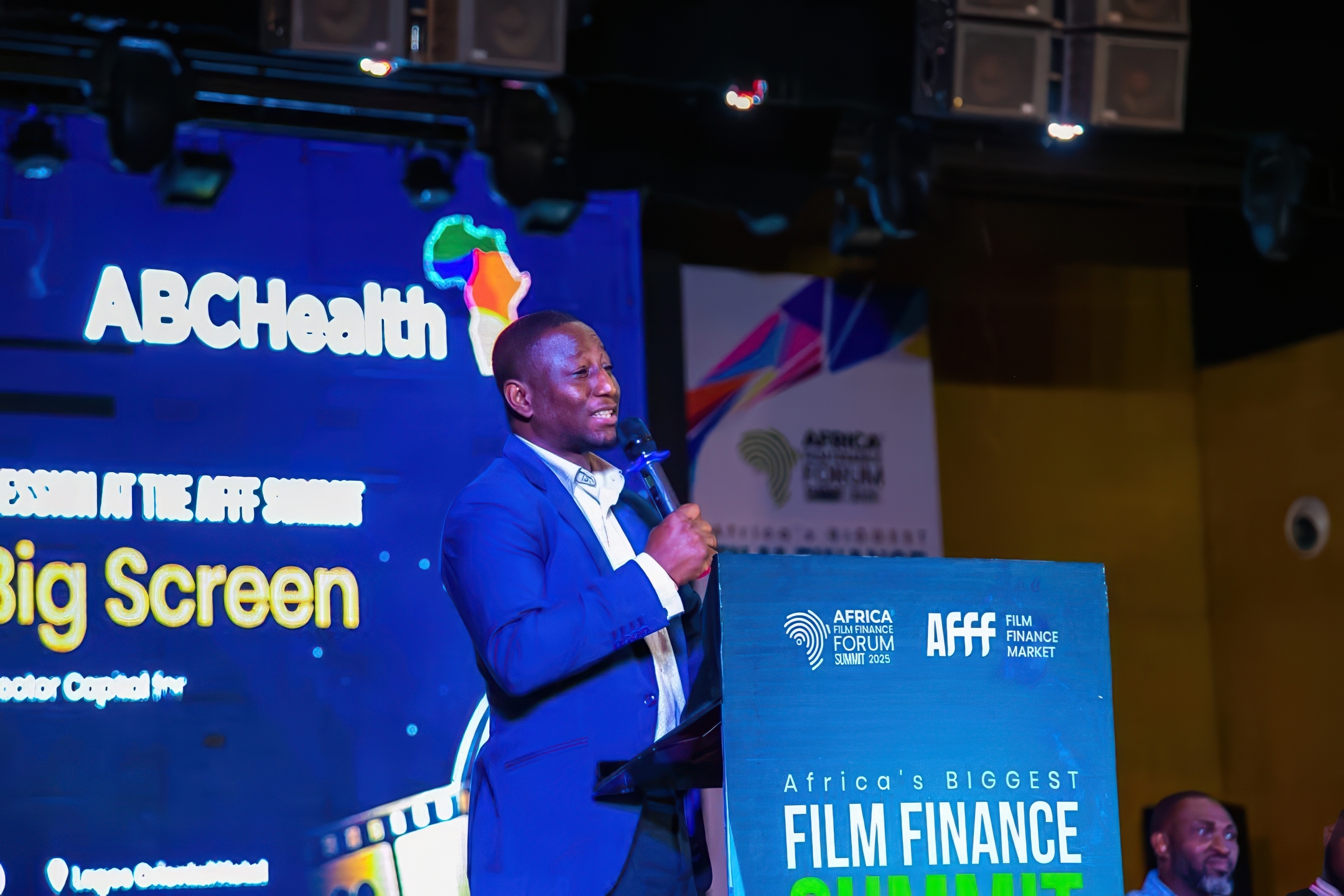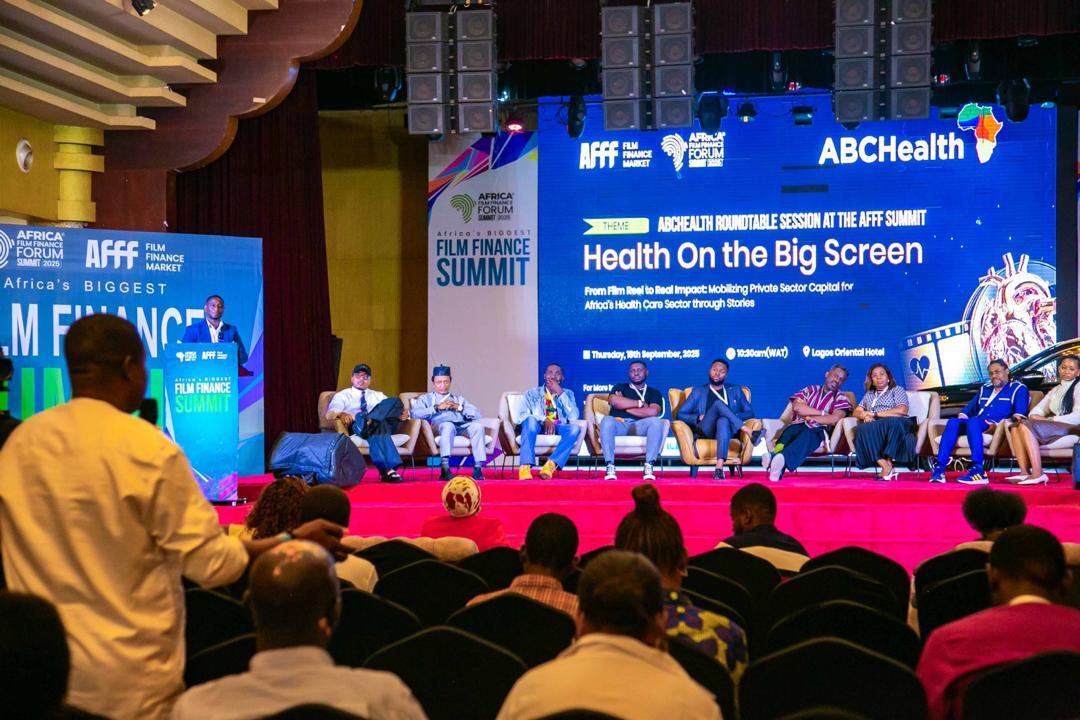Leaders from Africa’s creative, healthcare, and financial sectors convened at the Africa Film Finance Forum on September 18, 2025, and explored how the continent’s vibrant film industry can unlock private sector investment for health care transformation.
At the ABCHealth panel session, “Health on the Big Screen – From Film Reel to Real Impact,” which marked a key moment in how leveraging storytelling would prove to be a catalyst for long-term healthcare investment and reform.
Finance Needs a Story
Against a backdrop of persistent shortfalls in health funding, members of the panel at the Forum zeroed in on the value often hiding in plain sight: Africa’s stories. “Why do banks back billion-naira entertainment but hesitate on health?” was the session’s blunt opening. The immediate answer was both practical and provocative, which is that Finance needs a clear story. Experts argued that health initiatives must build investable pipelines, showing realistic revenue, measurable outcomes, and a path to payback if they are to compete for private capital.
“Projects must be both commercial and impactful, and the returns must be feasible within two to four years, whether from cinemas, streaming, or ancillary rights.” The panel emphasised that stories, when matched with sound financial logic, could boardrooms as much as movie audiences. Too often, panellists noted, the return on public health investment is underestimated, despite evidence that every dollar yields two to three dollars in community value and broader economic multipliers.
The Business of Saving Lives
With Nigeria’s movie industry as a powerful case study, the session highlighted how effective storytelling isn’t just about awareness, but a lot more about mobilising investment by framing health as a market opportunity. From personal tragedy to national reform, the stories shared drew a straight line between quality content, measurable outcomes, and increased audience engagement.
A member of the panel described the impact of a short film on cervical cancer: watched by hundreds of thousands, saw huge increases in screening rates, because it was relatability and specificity, not just outside-in messaging, that turned attention into action.” Another panellist cited budget analysis and ROI mapping for a multi-country project, underlining the need to demonstrate productivity gains and resilience as key incentives for investors.
Business logic also took centre stage. One analyst declared, “Today’s child is tomorrow’s customer.” Health stories that follow a person’s journey over time, from illness to recovery, build trust and demand for new services and products. The Forum encouraged content creators to segment audiences, tailor language, and treat film production assets such as facilities, distribution, and partnership platforms, as investable tools to pull in private funding.
From Empathy to Bankability
The panel championed a shift from outside-in messaging to sharply focused, audience-first storytelling, grounded in the market, not just the mission. A clinician shared: “Our seven-minute short film far outperformed expectations as people saw their own motivations and fears and then acted.” Producers described how workshops with NGOs and community representatives helped them build more authentic, effective content.
Financing mechanisms also took centre stage. The advice was blunt: start each project with a feasibility study, map out multiple revenue streams, and design rights packages for distribution across cinema, streaming, and broadcast to reduce risks for investors from day one. Panellists proposed innovations like telecom-based prepaid health cards and remote triage services, showing how films can spark dialogue and drive scale for new access points.


Telling, Funding, and Scaling Africa’s Health Stories
- Build investable health film pipelines: Each project requires transparent revenue models, feasible recoupment windows, and multi-platform rights to satisfy both economic and impact goals.
- Quantify and communicate ROI: Producers should work with data scientists to translate stories into measurable gains - from productivity to lifetime consumer value.
- Go audience first: Co-create with target communities, test focused narratives, and favour formats, such as short films, that drive participation and real outcomes.
- Expand emergency response capacity: Use storytelling to highlight systemic failures, then mobilise policy and private investment toward trauma and critical care reforms.
- Pilot access innovations: Launch telecom-enabled health products, use engagement data to crowd in capital, and scale the best content and tools.
In closing, the panel’s advice was clear and precise. When storytelling reveals unmet needs and demonstrates credible returns, health narratives shift from charity to core business. Africa’s creative industries now have a template, no longer waiting for capital, but mobilising it, recasting film as both a mirror and engine for continent-wide healthcare transformation.













